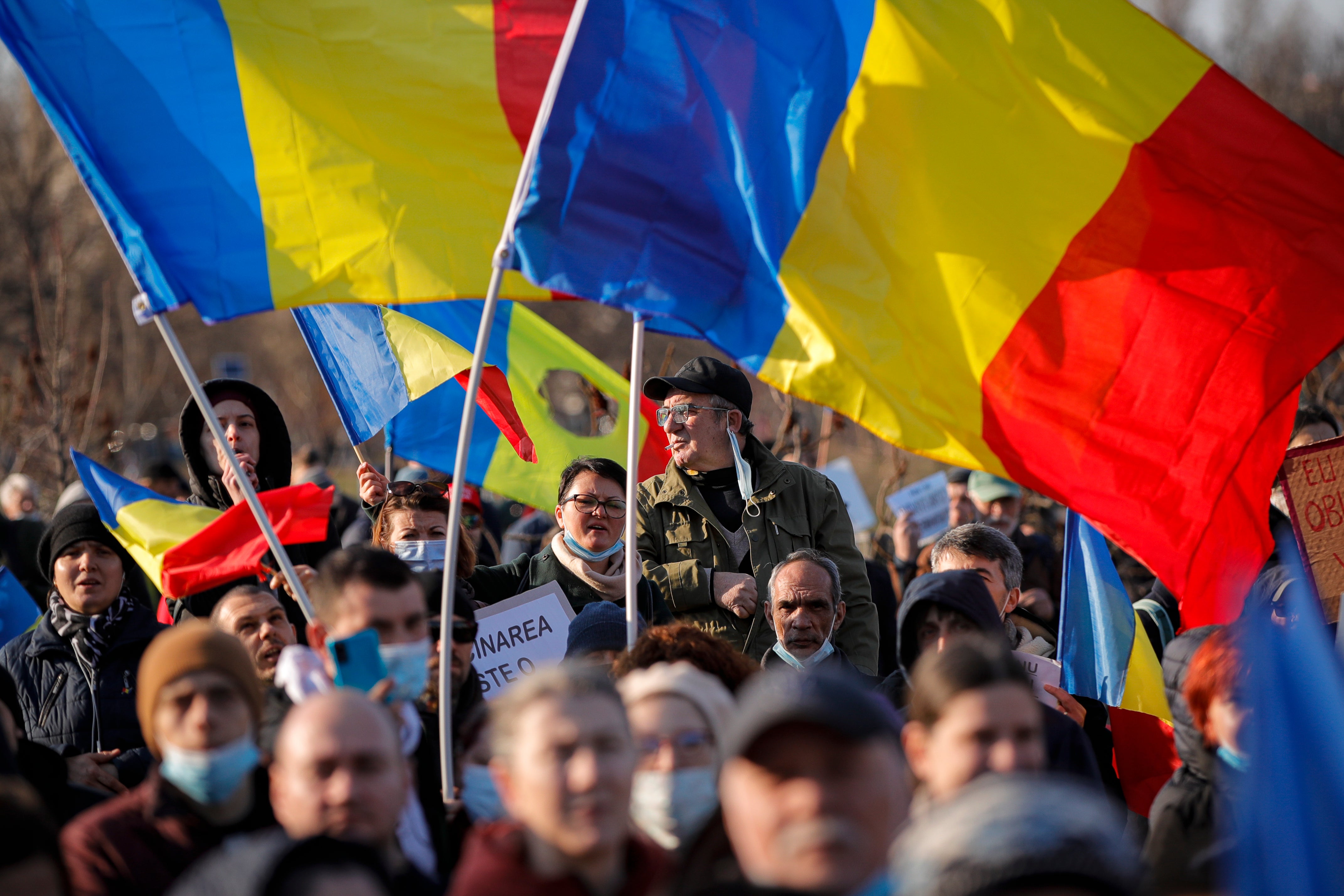3,000 at Romania anti-vaccination protest amid COVID-19 rise
Around 3,000 anti-vaccination protesters from across Romania have converged outside the parliament building in Bucharest as authorities announced new restrictions amid a rise of COVID-19 infections

Your support helps us to tell the story
From reproductive rights to climate change to Big Tech, The Independent is on the ground when the story is developing. Whether it's investigating the financials of Elon Musk's pro-Trump PAC or producing our latest documentary, 'The A Word', which shines a light on the American women fighting for reproductive rights, we know how important it is to parse out the facts from the messaging.
At such a critical moment in US history, we need reporters on the ground. Your donation allows us to keep sending journalists to speak to both sides of the story.
The Independent is trusted by Americans across the entire political spectrum. And unlike many other quality news outlets, we choose not to lock Americans out of our reporting and analysis with paywalls. We believe quality journalism should be available to everyone, paid for by those who can afford it.
Your support makes all the difference.Around 3,000 anti-vaccination protesters from across Romania converged outside the parliament building in Bucharest on Sunday as authorities announced new restrictions amid a rise of COVID-19 infections.
It has been less than six weeks since COVID-19 restrictions were relaxed in Bucharest, but rising infections have prompted authorities to reimpose tighter restrictions for a 14-day period effective as of Monday.
The restrictions will see bars, restaurants, theaters, gambling venues, and cafes close indoor spaces as the capital’s infection rate rose above three cases per 1,000 inhabitants over a 14-day rolling period — effectively entering a “red scenario,” which the authorities use as a threshold to manage both restrictions and the spread of the virus.
Many protestors brandished Romanian flags and chanted “freedom” and “down with the mask.” A large placard read: “Say no to forced vaccination.”
The demonstration was attended by George Simion, the leader of Romania’s far-right AUR party, which has been vocal against compulsory vaccination.
The new restrictions will see many schools in the capital revert back to online learning, while nurseries, primary school pupils, and those from eighth to 12th grades will continue with physical attendance, in some cases operating only at half capacity.
“We have already been through this and we survived,” Andreea Beca, who owns a small bistro in central Bucharest, told The Associated Press.
“We also realized that maintaining the quality of our food is the most important criteria for our customers and that they are ordering online — we can only hope for the best,” she said.
Harsher measures are to be imposed at the same time in the western city of Timisoara, a city of more than 400,000 residents, which will enter quarantine after its infection rate rose above seven per 1,000 residents.
In quarantined areas, inhabitants are obliged to fill out an official form stating the reason for their movement. Across the country, there is a lightly enforced curfew between 11 p.m.-6 a.m.
Many former communist countries in Eastern Europe are battling against vaccine skepticism as immunization campaigns are slowly rolled out across Europe.
According to a government website, more than 1.7 million people in Romania have received a COVID-19 vaccine.
Romania — a country of more than 19 million people — has recorded more than 828,000 COVID-19 infections, and 20,900 people have died.